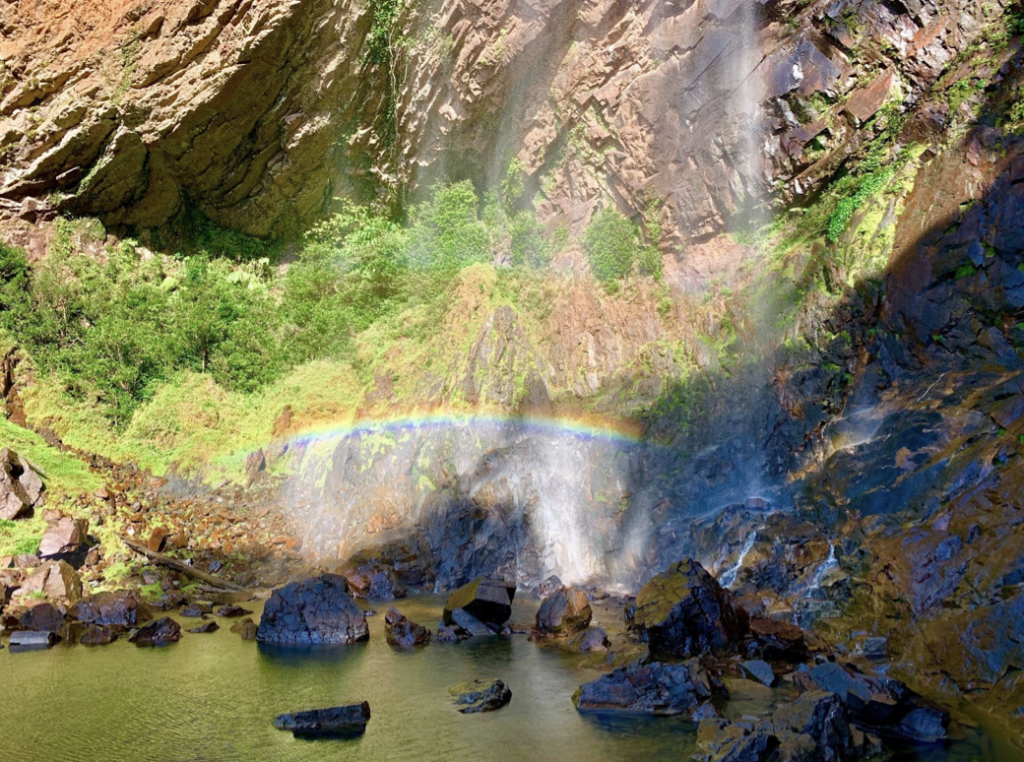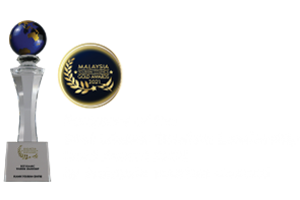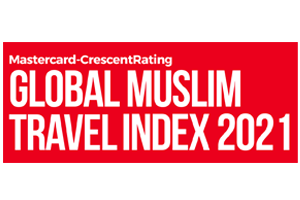Picture credit: Rainbow Waterfalls, Sungai Lembing, Pahang
Dr. Irwan Mohammad Ali, Coordinator of the Industry, Community and Alumni Network, Universiti Teknologi MARA (UiTM), Perak Branch, offers this perspective on how Muslim-Friendly Tourism and Hospitality relates to sustainability, and how travel connects us at a deeper level with the meaning of life and the greatness of the Almighty, in the true sense of what Islamic Tourism is all about.
Demand for Halal tourism products is increasing due to changes in the social and economic conditions of the country where Muslims make up the majority of the population.
Thus, Muslim-Friendly Tourism and Hospitality is among the tourism concepts that has great potential and is often discussed among local and international industry tourism players.
In Malaysia, Islamic Tourism Centre (ITC) has been a premier advocate and prime mover in promoting the country as a hub of Islamic Tourism and Muslim-Friendly Tourism and Hospitality based on global standards and recognition as its reference.
ITC also serves as a centre of excellence through focused efforts on research, training, capacity building, standards and certification, industry development, destination diversity, inclusivity, and technology-based digital applications.
Basically, the concept of Muslim-Friendly Tourism and Hospitality is a need based on Shariah requirements for Islamic Tourism industry players to fulfil. It’s in keeping with efforts to provide quality products and services to cater to the needs of local and international Muslim travellers.
The Muslim-Friendly Tourism and Hospitality concept also has a big impact on the Islamic Tourism industry including aspects of spiritual, economic, social and environmental sustainability. Learning about Muslim-Friendly Tourism and Hospitality offers a unique and valuable experience in guiding individuals toward spiritual growth.
Muslim-Friendly Tourism and Hospitality is able to stimulate the local economy by benefiting more local entrepreneurs, redistributing economic power, as well as creating a resilient economy.
Indirectly, this concept contributes to economic growth, job creation and increased income among the community.
Based on this potential, existing facilities to support Muslim-Friendly Tourism and Hospitality activities must fulfill current standards and aspirations. The best approach is to develop attractive Muslim-Friendly Tourism and Hospitality products and experiences that are valuable, while providing adequate information about them.
Therefore, it is important to manage a tourist destination and its facilities by looking at its religious, cultural and spiritual values, and how these can be sustained over time.
There are several key factors to consider when managing the facilities and infrastructure within a Muslim-Friendly Tourism and Hospitality destination.
First, prayer facilities must be comfortable, appealing and tranquil spaces. Among the key considerations are accessibility, security, well-planned layout, and facilities for people with disabilities (OKU).
The main purpose of the prayer room facilities is to create a calm, clean and safe environment for the daily rituals to be carried out in peace. Given the COVID-19 pandemic situation, the necessary safety procedures need to be observed to contain the spread of infection.
Second, the provision of user-friendly washroom facilities and emphasis on sustainable water use practices. Facility managers must consider a universal design for public use, proper toilet orientation, Shariah-compliant hygiene practices, and water conservation to improve cost effectiveness and ensure efficienct usage.
Therefore, it’s important to maintain a high and consistent standard of cleanliness in washroom facilities.
Third, the development of transportation infrastructure and services supported by information on services provided and prices, accessibility, and user comfort. Transportation service providers that embrace the concept of Muslim-Friendly Tourism and Hospitality should provide information that is comprehensive, transparent and integrated so as to facilitate travellers’ logistics decisions.
Fourth, the availability of communication services with a network that is reliable, trustworthy, secure and has high speed access. No doubt, the challenge of providing such service quality is huge in areas where telecommunications system networks and internet access are weak.
Although upgrading these facilities will incur high investment costs, it will improve the quality of telecommunications in Muslim-Friendly Tourism and Hospitality destinations in the long run.
Fifth, the provision of clean and pure water supply is extremely important in Muslim-Friendly Tourism and Hospitality destinations. Therefore, the water supply facility at such destinations requires a water distribution and storage system that secure, well-maintained and Shariah-compliant.
It is also necessary to ensure that the water pressure source and supply are not disrupted, and that an adequate water supply storage system is available for emergencies.
Sixth, Muslim-Friendly Tourism and Hospitality destinations are closely connected to the inherent uniqueness of facades and built environments that showcase Islamic characteristics. Thus, tourism destinations with Islamic historical significance, as well as ancient Islamic and neo-Islamic architectural designs, can become important attractions. In addition, physical spaces, designs and gardens that bear elements of Islam can be leveraged to entice local and international Muslim tourists.
Seventh, the provision of segregated leisure facilities is also among the things that are often emphasised in highlighting the concept of Muslim-Friendly Tourism and Hospitality. Such provision may be considered for recreational sports activities, swimming pools, gyms, and amusement parks, which are often the focus areas of tourists.
Maintaining the privacy and ‘awrah (aurat) of men and women are among the things emphasised in Islamic law. This aspect of preserving one’s modesty is a big concern among most Muslim tourists when they travel.
With separate facilities for males and females in place, women can dress appropriately and use the recreational facilities with peace of mind.
In conclusion, a Muslim-Friendly Tourism and Hospitality destination is one that applies Islamic values and reflecting it along the traveller’s entire journey.
In conclusion, the facilities at a Muslim-Friendly Tourism and Hospitality destination should not only be in place to enable trips to be made, but above all, to reflect upon and apply the ideals embodied in Islamic teachings.
Thus, the government’s continuous efforts under the Ministry of Tourism, Arts and Culture, and Islamic Tourism Centre as champions of Muslim-Friendly Tourism and Hospitality in Malaysia, are highly commendable. It is hoped that Malaysia’s Muslim-Friendly Tourism and Hospitality concept, with its emphasis on sustainability, will be used as an example and reference on a global scale.
This article first appeared in Berita Harian on 15 February 2022.
—– END —–
Islamic Tourism Centre (ITC) is an entity under the Ministry of Tourism, Arts and Culture, Malaysia tasked to develop the Islamic tourism segment for Malaysia. It advocates for Muslim-friendly tourism (MFT) by offering research and market intelligence, training, industry development consultation, Muslim-friendly tourism and hospitality (MFTH) service standards and certification, and information exchange.
In 2021, ITC received two key awards, i.e. Strategic Business Alliance Award at The BrandLaureate World Halal Best Brand E-Branding Awards 2021, and Best Islamic Tourism Leadership Gold Award 2021 by Malaysia Tourism Council. These are recognition of ITC’s efforts and endeavours in formulating new strategies to meet the new normal of the business environment to ensure business continuity and sustainability, notwithstanding its role to develop and grow the Islamic tourism segment in Malaysia.
In addition, Malaysia was named top country in the region in the MFT sector by the State of the Global Islamic Economy (SGIE) Report 2020/21. Malaysia also retained the top-ranked destination in the MasterCard-CrescentRating Global Muslim Travel Index (GMTI) 2021, a position it has defended since the launch of the Index in 2015.
These recognitions are an added motivation for ITC to continue to strengthen its efforts in being a prime mover and leading institution to ensure Malaysia is at the forefront of MFTH.
For further details, kindly contact:
Islamic Tourism Centre,
Level 13, Ministry of Tourism, Arts and Culture Malaysia
No. 2 Tower 1, Jalan P5/6,
Precinct 5, 62200 Putrajaya, Malaysia
Tel: 03-8891 7177 or via email itc@itc.gov.my
Follow ITC on these social platforms:
Facebook: Islamic Tourism Centre
Twitter: @itc_my
Instagram: @itc_my
Youtube: Islamic Tourism Centre






